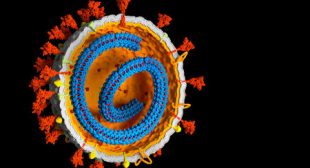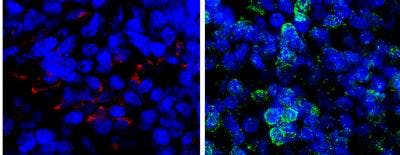
A team of prominent scientists has doubled down on its controversial hypothesis that genetic bits of the pandemic coronavirus can integrate into our chromosomes and stick around long after the infection is over. If they are right—skeptics have argued that their results are likely lab artifacts—the insertions could explain the rare finding that people can recover from COVID-19 but then test positive for SARS-CoV-2 again months later.
Stem cell biologist Rudolf Jaenisch and gene regulation specialist Richard Young of the Massachusetts Institute of Technology, who led the work, triggered a Twitter storm in December 2020, when their team first presented the idea in a preprint on bioRxiv. The researchers emphasized that viral integration did not mean people who recovered from COVID-19 remain infectious. But critics charged them with stoking unfounded fears that COVID-19 vaccines based on messenger RNA (mRNA) might somehow alter human DNA.




